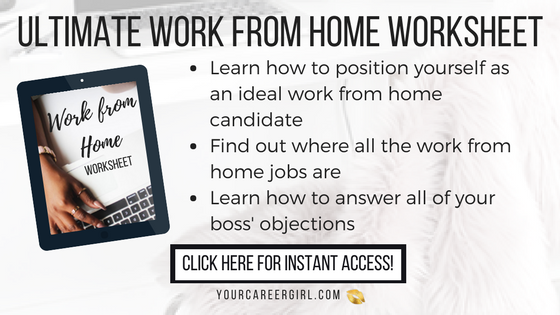Let me break down each of the common fears you may have when it comes to asking for a raise and explain what I mean.
Fear #1: Your boss/company has indicated requests for raises will be turned down
I’ve been in HR a long time and worked with large Fortune 500 companies, non-profits with less than five employees and mid-sized tech startups. Believe me when I tell you there’s never a 100% shut down on raises.
Are there budget constraints? Of course. Politics and red tape that need to be carefully navigated? Yes. But what’s in any company’s best interest at all times is the retention of high performing people. I’ve seen plenty of instances where exceptions have been made and raises granted even though the previous party line had been that no raises would be approved.
My point? Even if you believe there’s a chance your request for more money will be turned down, go ahead and ask for it anyway. At best, you’ll get all or a portion of what you’ve asked for. At worst, they’ll know what your expectations are and that you aren’t afraid to go after what you want.
Fear #2: You don’t feel confident in your job performance
There are usually two types of people who don’t feel confident in their performance at work. Those who are actually not performing well (and who should put asking for a raise on hold until performance improves) and those who are amazing at what they do and are just being tough on themselves.
Look at your past performance reviews and think back to your accomplishments – are you really not doing well or is this defense mechanism you’ve created so you can discourage yourself from having to ask for more money?
Once you’ve done some reflection and determined you actually don’t suck, it’s time to move past this fear and focus on going after the pay you deserve.
Fear #3: You don’t feel you’ve been in the position long enough
I completely understand this fear. No one wants to be the person who’s been at the company or in a role for all of two days and already asking for more money. It’s not a good look – I get that.
But if you’ve done your research and discovered you’re being severely underpaid, completed a huge project that provided great impact for your team, and/or been given additional responsibilities above your paygrade, you’re in a good position to revisit the money conversation.
All things considered, the length of time you’ve been in a position is far down the list of reasons managers/HR considers when deciding whether to grant someone a raise or not. So, if it’s something you’re worried about – don’t be.
Fear #4: You believe your boss/company will say no
Fear of rejection is a thing. A really big thing that keeps high achieving and ambitious women from reaching their fullest potential every single day.
I get it: No one likes to be told no. It doesn’t feel good. The truth is though, when it comes to asking for a raise, most people who ask will get some sort of increase. Even if they aren’t getting all of what they’ve asked for, getting a little bit of something is always better than getting a lot of nothing.
Being told no isn’t the end of the world. You will not die. Once you come to terms with this, you’ll find you’re more comfortable asking for what you want (including more money).
Fear #5: You’re afraid you’ll be fired for even asking the question
This isn’t true. Period.
Unless you’re planning on marching into your boss’ office and saying something like: “You better give me more money, or else”, this just isn’t how things work in the real world.
Again, the worst thing that usually happens when asking for a raise is you’re told no. That’s it. No reprimanding or firing.
***
The bottom line is this: Asking for a raise isn’t as difficult as you think it is. Is the process uncomfortable? Sure. But that doesn’t mean you should let fear keep you from moving forward.






























































